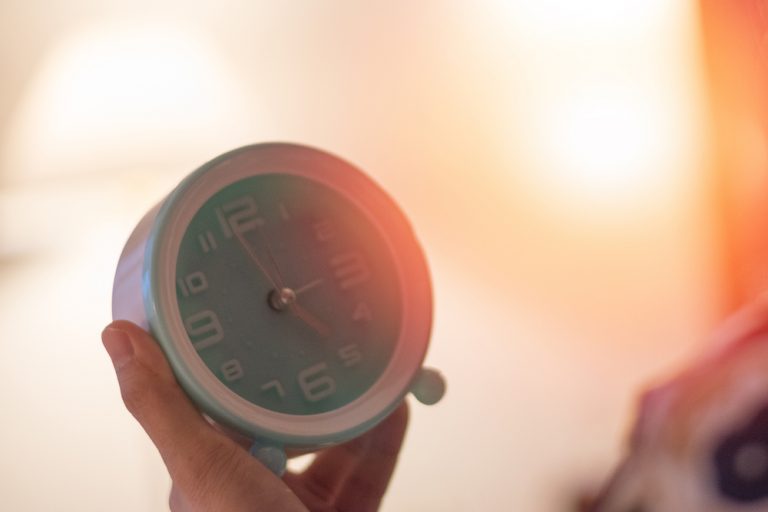
Beauty Sleep: What Your Skin Does While You're Sleeping
The skin is an organ – in this, it has its own specific systems and processes that it needs to carry out regularly. At any given time, your skin may be repairing itself, protecting itself, hydrating itself and so on and so forth. It doesn’t do it willy-nilly. Like everything else, it has a cycle and a structure.
As hoomans, we have something called circadian rhythm. Although it sounds like a band you go to see when there’s nothing else on at a festival on a Sunday afternoon, it is actually our clock. Circadian rhythm defines when the elements, systems and organs that make up our body carry out certain processes.
It is the exact reason that we begin to get tired at in and around the same time every day and that we feel most awake at certain points too, including the post-lunch slump when you’re at your desk trying not to straight “Zzzzz” when your boss is behind you.
Let me tell you, it’s not a better feeling when you’re your own boss. Your body’s circadian rhythm defines your skin’s own sleep/wake cycle. Pretty cool, innit? However, if you’re not going to sleep and waking up at similar times, your skin doesn’t get the right rest either…
What your skin does while you're sleeping
The skin carries out certain specific processes best at night-time. If you, like me, work best late at night due to the lovely quietness, you’ll understand where it’s coming from. Throughout the day, the skin is working with being essentially invaded by at least UVA (year-round sunlight that can get further into the skin and cause damage) but sometimes UVB rays (those that cause sunburn and come with heated sunlight) as well as pollution, changes in humidity and more. Because your skin needs to focus on protection during the day, it is much better at its other processes at night.
Exfoliation
In case you didn’t know, our skin exfoliates itself. That’s right, it creates new skin cells and then sloughs off dead skin cells all on its own. Physiologically, it’s known as skin cell proliferation. In fact, in measurements of this process within the human epidermis, it was shown that skin cell proliferation happened at a rate of 30x faster at night than in the afternoon. Our natural exfoliation process is what keeps our skin looking radiant, helps to prevent our pores from becoming clogged and is necessary for new skin cells to move in.
Heals and repairs damage caused
Like the Elves and the Shoemaker, your skin does the hard work when you’re asleep. Night-time is when our skin attempts to repair DNA damage caused by UV rays (sunlight-related damage) and pollution through cell renewal.Your skin's metabolism
Although you may know metabolism as the thing that stops you from losing weight no matter how many Penguin bars you skip, your skin cells have their own metabolism too. It’s your skin’s metabolism that defines how well different types of cells will be able to “talk to” each other and send each other signals. Comparing skin cells to a workplace, your skin’s metabolism is kind of like the WiFi. The stronger it is, the better the other processes will run.

Your skin cell and skin metabolism is faster at night so everything runs a bit smoother.
Hydration
This is the downfall of your skin Speedy Gonzalez-ing. As all of the other processes are happening faster, so is trans-epidermal water loss or TEWL. This is the technical term for the loss of hydration through your epidermis. This means that you may wake up with your skin feeling a little bit tighter and if you have dry skin, the morning is probably when it will be at its driest.
Nutrition
Whilst we sleep, our body increases blood flow. What this means with regard to skin is additional oxygen and nutrients which contribute to the general health of skin cells. Oxygen is what keeps us glowing (have you heard of oxygen facials and oxygen masks?!). This is why we may be a little bit deathly in pallor after a night of unrestful sleep, including those nights when we go to bed with a few extra glasses of wine in us.
Skincare products to use while sleeping
Exfoliation
Seeing as our skin naturally exfoliates faster at night, it is best to exfoliate as part of your PM routine rather than your AM routine. There’s no harm in both, of course, so long as it has been advised by your particular skin expert. However, this is what I tend to do. I like to do this with an exfoliating cleanser or masque. Académie’s Derm Acte Daily Exfoliating Cleanser Glycolic Acid 6% (€49.00) is a fabulous one if you’re starting out using glycolic acid. Glycolic acid is the best exfoliating acid for those looking to tackle ageing and those with normal to dry skin. Starting at a lower percentage is key as glycolic can cause some mild peeling and redness if overused.

If you’re oilier and more spot-prone like myself, opt for salicylic acid or a blend of acids that contains salicylic acid because it helps to dissolve sebum as well as exfoliate. Murad’s AHA/BHA Exfoliating Cleanser contains a combination of AHA and BHA to exfoliate with both glycolic acid and salicylic acid. If you’ve tried exfoliating with acids like salicylic acid, glycolic acid, usually gentle lactic acid and even gentler poly-hydroxy acid (PHA) yet they still cause irritation to your sensitive skin, opt for enzymatic exfoliation. IMAGE Vital C Hydrating Enzyme Masque is your man as it contains enzymes from pineapple and papaya to gently gobble up dead skin cells like little Pac Mans, as well as vitamin C, vitamin E, vitamin A and hyaluronic acid.
Hydration
If you are one of the people mentioned earlier that wakes up with drier skin than they went to sleep with, an additional occlusive product on top of your serums et al will help to prevent loss of hydration. Now, this is not for most people. This is for those who seem to be leaking moisture, even though they are getting enough omegas, using other hydrators and trying other things.

Avene Hydrance Hydrating Cream Rich is ideal as something to pop on top of your other products as it contains occlusive ingredients, aka ingredients that stop moisture and your other skincare products from evaporating off the skin. Overnight hydration masques are also key – IMAGE Vital C Hydrating Overnight Masque is beautiful, full of vitamin C and E as well as hyaluronic acid and blue-green algae, which behaves like a retinoid, plumping out wrinkles.
Why it is so important to properly remove your makeup before sleeping
Cosmetic makeup (ie. all makeup that isn’t mineral makeup) sits within the pore. As you are aware after reading the above, your skin needs to be uninterrupted, clear-pored and clear-hearted to do all of its night bits. If you don’t take off your makeup before bed, your skin can’t do its night-time routine properly. If makeup is causing a blockage in the pore, it means that oil and dead skin cells become trapped beneath the blockage, leading to the formation of spots. If speed is your bag and lack of speed is the reason you’re sleeping with your makeup on, you definitely don’t want to use facial wipes. Opt for the Cleanse Off Mitt – I am biased as I am its creator. However, it’s a truly useful & time-saving pre-cleanse step for removing makeup prior to your second cleanse, which you need to do.
Do naps count towards beauty sleep?
Bad news for those of you who make up for lost sleep by napping: naps don't count towards your beauty sleep. For optimal skin sleep, you need to be getting 7 hours of rested sleep, not waking up repeatedly throughout the night. Naps, although fabulous for if you’re getting tired on a road trip or if you need to be up all night for Deirdre’s 40th, do not allow your skin to fall into its usual pattern. Now that you’re in the nerdie know about sleep, find out how to optimise your own sleep with a personalised skincare regime from one of our professional Nerdettes.
Reference Matsui, Mary S. et al. “Biological Rhythms in the Skin.” Ed. Elma Baron. International Journal of Molecular Sciences 17.6 (2016): 801. PMC. Web. 22 Aug. 2018.

